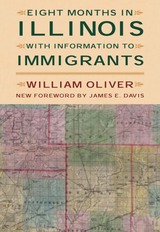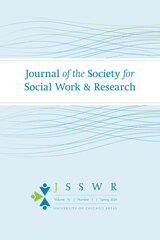
The Illinois frontier offered abundant opportunity, noted English traveler William Oliver after his journey to America in 1841–42, but life there was hard. Accordingly, Oliver advised the wealthy and comfortable to remain in England and counseled the unprosperous to seek their fortunes in America. Written for the poor who would migrate and published in 1843, his Eight Months in Illinois: With Information to Immigrants sought only to provide pertinent, valid, and practical information about what people might encounter in the frontier state. What Oliver actually accomplished, however, was much more: he imparted invaluable insights into and analyses of American life during an era of sweeping social, economic, and political change.
In his new foreword to this edition, James E. Davis stresses Oliver’s sincere desire to help British immigrants succeed in America. Oliver, Davis notes, “devoted dozens of pages of advice on numerous matters: various routes to Illinois and their advantages and disadvantages, processes of settling, qualities of western houses, costs of obtaining a new farm.” Oliver discussed other practical matters, such as the importance of having sons. He also assured his intended readership that “in the West, distinction of classes is little known and seldom recognized.”
As a document covering the middle west in the 1840s, Eight Months in Illinois: With Information to Immigrants has few equals. Its portrayal of farming and trade in relatively primitive times is historically accurate. It paints a plain picture, laying out the essential facts and presenting the typical incidents that enable us to trace the course of a settler’s simple, diligent, laborious day-to-day life. According to Davis, Oliver depicted “accurate and balanced slices of life in Illinois and America, including nasty insects, crude conditions, and the necessity of work.” And he did so without a trace of anti-American bias.
Eight Months in Illinois with Information to Immigrants was reprinted with emendations in 1924 by Walter Hill.

The aim of this anthology is to present a selection of plays that are representative of a fresh spirit and of societal pressures and changes in Spanish American culture. The plays shun the earlier realistic, sentimental, and melodramatic conventions of Spanish American theater. Instead, they reflect the tenor of the dramatic imagination of the mid-to-late twentieth century—an imagination that sought new forms and ways of expressing a new awareness of the Spanish American dilemma.
In selecting these plays, William I. Oliver looked for more than mere illustrations of these changes. As a practicing director and playwright, he sought works that are effective on the stage as well as on the page. As an editor and translator, he sought works “that could be translated culturally as well as linguistically.” The six plays in this varied and vigorous anthology are the measure of his success.
The plays included are The Day They Let the Lions Loose, by Emilio Carballido (Mexico); The Camp, by Griselda Gambaro (Argentina); The Library, by Carlos Maggi (Uruguay); In the Right Hand of God the Father, by Enrique Buenaventura (Colombia); The Mulatto’s Orgy, by Luisa Josefina Hernández (Mexico); and Viña: Three Beach Plays, by Sergio Vodánovic (Chile).
READERS
Browse our collection.
PUBLISHERS
See BiblioVault's publisher services.
STUDENT SERVICES
Files for college accessibility offices.
UChicago Accessibility Resources
home | accessibility | search | about | contact us
BiblioVault ® 2001 - 2024
The University of Chicago Press









